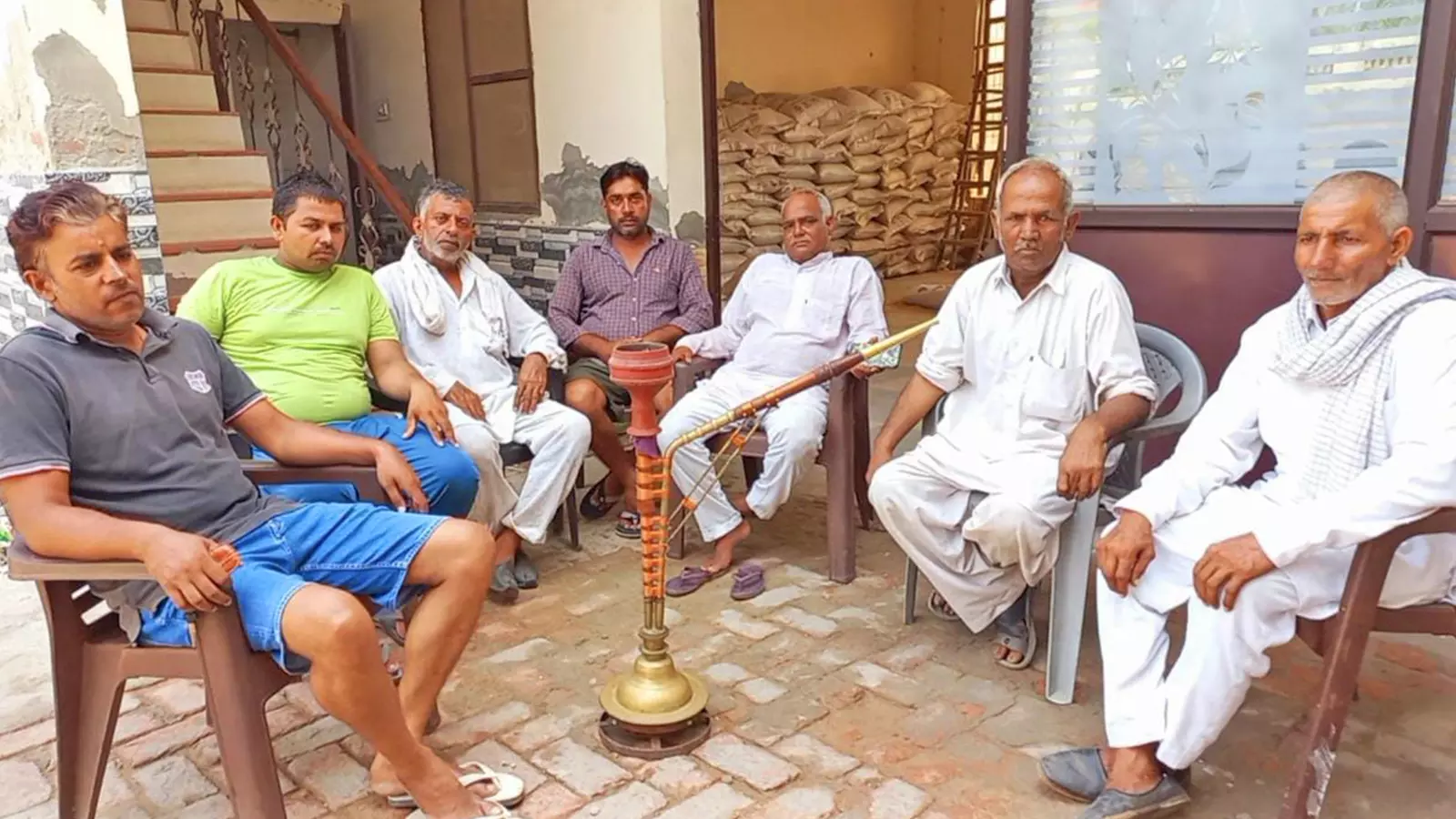
- Home
- India
- World
- Premium
- THE FEDERAL SPECIAL
- Analysis
- States
- Perspective
- Videos
- Sports
- Education
- Entertainment
- Elections
- Features
- Health
- Business
- Series
- In memoriam: Sheikh Mujibur Rahman
- Bishnoi's Men
- NEET TANGLE
- Economy Series
- Earth Day
- Kashmir’s Frozen Turbulence
- India@75
- The legend of Ramjanmabhoomi
- Liberalisation@30
- How to tame a dragon
- Celebrating biodiversity
- Farm Matters
- 50 days of solitude
- Bringing Migrants Home
- Budget 2020
- Jharkhand Votes
- The Federal Investigates
- The Federal Impact
- Vanishing Sand
- Gandhi @ 150
- Andhra Today
- Field report
- Operation Gulmarg
- Pandemic @1 Mn in India
- The Federal Year-End
- The Zero Year
- Science
- Brand studio
- Newsletter
- Elections 2024
- Events
- Home
- IndiaIndia
- World
- Analysis
- StatesStates
- PerspectivePerspective
- VideosVideos
- Sports
- Education
- Entertainment
- ElectionsElections
- Features
- Health
- BusinessBusiness
- Premium
- Loading...
Premium - Events

At the Kaithal city bus stand, Nishant Kumar lifts his eyes from the phone to look at the road to check if the village bus he is waiting for is nearing. Unable to see the bus, Nishant once again looks at the phone. He isn’t idly scrolling but is busy talking to his friend Rajesh on a WhatsApp video call. What holds Nishant’s rapt attention are Rajesh’s experiences in the US. Rajesh’s...
At the Kaithal city bus stand, Nishant Kumar lifts his eyes from the phone to look at the road to check if the village bus he is waiting for is nearing. Unable to see the bus, Nishant once again looks at the phone. He isn’t idly scrolling but is busy talking to his friend Rajesh on a WhatsApp video call. What holds Nishant’s rapt attention are Rajesh’s experiences in the US. Rajesh’s grin is infectious as he recounts how he landed his first job, which involved dishwashing at a restaurant, for a daily wage in the new land.
“I want to be where Rajesh is. I want to be in the US,” Nishant tells The Federal after finishing his call with his friend. “I want to earn in dollars too.”
The US dream isn’t too old for the 23-year-old. Not too long back all he wanted was to find a secure government job. He had successfully cracked multiple exams, ranging from clerical positions to sub-inspector roles in the Haryana Police force. Unfortunately, the recruitment process hit various roadblock. In some cases, the exam was cancelled due to leaks, and in other instances, the procedure was legally contested.
Going abroad, however, is not an easy choice for Nishant. He is faced with his own dilemmas. While he wants to stay in his hometown and find work closer home, the circumstances in Haryana are forcing him to look for opportunities in far away lands.

Rudra Rajesh Singh says that once these aspirants secure study visas and land in foreign countries, some neglect attending university classes and even risk violating visa conditions to work.
Unlike Rajesh’s family, Nishant’s father does not own any agricultural land that he can sell to fund his American dream.
“Haryana’s hinterland districts such as Kaithal-Jind-Kurukshetra-Karnal-Ambala are following the footsteps of neighbouring Punjab,” he said.
According to data presented in Parliament by Union minister of state for external affairs V Muraleedharan, Haryana sends around 150 students abroad per one lakh people. Around 30,000 students from Haryana left for foreign countries for studies between 2018 and 2022. Even when the Russia-Ukraine war broke out, about 2,000 people from Haryana, mostly students, were stuck in Ukraine.
Shamsher Singh, a local farmer, empathizes with Nishant’s plight. He recalls his son’s fervent aspiration to join the Indian Army, a passion that led him to intense training sessions, enduring great physical discomfort. The onset of the Covid pandemic disrupted his training, and subsequent government policies like the Agnipath scheme, requiring only a four-year commitment from recruits, shattered his dreams.
The Kisan Andolan on Delhi’s border, according to the farmer, stems from the unprofitability of farming. Shamsher Singh shared how his father endured consecutive crop losses, and now they are struggling to make ends meet. To break this cycle of debt for their children’s sake, they've opted to send them abroad for employment.
Suresh Kumar, who sold one-and-half acres of land to finance his son’s overseas journey, simplifies the decision, “Even if my son worked locally, he’d need a job. So, why not earn in dollars instead of rupees? The difference between the Indian rupee and the US dollar is substantial—80 times—and the abundance of opportunities there make it a risk worth taking.”
Shifting landscape of coaching for international opportunities
Rudra Rajesh Singh, the proprietor of Skytech Education Centre in Haryana’s Hisar district, draws on his extensive experience with international aspirants to emphasize their strong desire to reach foreign shores, regardless of the means. Rudra Singh notes that once these aspirants secure study visas and land in foreign countries, some neglect attending university classes and even risk violating visa conditions to work. Reflecting on his interaction with those aspiring for Ausbildung visas to Germany, Kundu observes that individuals aged 18 to 38 approach him to prepare their files. When faced with the challenge of the mandatory German language B-1 course, they begin exploring illicit avenues for gaining entry into the country.

A coaching hoarding in Haryana.
Parveen Kumar, who manages a coaching centre for overseas study and work visas in Rohtak, narrates a similar transformation. When he initiated his instruction in IELTS and spoken English in 2010, very few students enquired about opportunities in Australia, Canada, or the US. However, the landscape has evolved dramatically. In the post-lockdown era, his coaching centre sees hundreds of students seeking assistance. Nearby coaching centres, once focused on military preparation, have shifted gears to provide IELTS and PTE coaching. This trend extends to students from even the remotest corners of the district, who after completing their 10+2 education, now come to enhance their language proficiency.
He said that the demand of students aspiring to go abroad could be assessed from the advertisement banners placed in the city and even far-flung villages.
Manish Kumar, who runs the AMS Coaching Centre for defense jobs, said that the Agnipath scheme has discouraged many aspirants from preparing for the olive uniform. “Given the demand, I am soon shifting my coaching from defense coaching to IELTS/PTE preparation”, he added.
Risk worth taking
Rashmi Nandal, who had flown to Melbourne two years ago on a study visa, said that she had appeared in several competitive exams back in India but she remained unsuccessful.
“The thought of not being able to crack competitive exams left me depressed so I opted to study in Australia. I am happy now balancing my college studies and work at a Subway restaurant. Besides earning money for my tuition fees, I have sent money back home to my widowed mother, who was reluctant to send me abroad initially. Had I been in my hometown, I would be getting scolded for remaining unsuccessful both in studies and work,” she told The Federal.
She said that she does not feel lonely in Melbourne because she can find young people of her age in public places and even at work. “Students are coming in hordes even at the cost of selling their family assets in the hope of making fortunes,” she added.
Hardeep Randhawa, originally from Haryana’s Sirsa district, who now lives in Surrey, reached Canada a decade ago, owns a truck company. His success story inspires youth to seek opportunities abroad, but he emphasises the challenges and struggles involved in achieving such success.
“Every week, multiple planes are reaching Canada with people from Haryana. Earlier, this was the case with Punjab but youth from Haryana are no longer behind in chasing the overseas dream,” Randhawa added.
Lack of jobs
Shweta Dhull, a firebrand recruitment activist, raises her voice against malpractices in government job exams and the high unemployment rate in Haryana. She accuses the state government of being in denial about the severity of the unemployment issue, particularly pointing out that the Centre for Monitoring Indian Economy (CMIE) data indicates that Haryana has a high unemployment rate.
Dhull, mother of two, highlights a pattern of problems during recruitment drives, such as paper leaks, exam cancellations, and recruitment withdrawals. This pattern, she claims, has hindered the recruitment of candidates for various government positions since 2019. Her statement suggests that the recurrent malpractices have eroded the trust in the fairness and integrity of the recruitment process.

People in Haryana are selling land to send their children abroad.
Regarding the Agnipath scheme, Dhull says, it was intended to encourage youth participation in the Indian Army and Air Force. She, however, notes that there has been a decline in the number of youth participating in the scheme.
According to Dhull, the series of exam leaks, cancellations, and systemic loopholes have led many youths to consider seeking opportunities abroad rather than struggling within the uncertain Indian job market.
“Foreign shores are being seen as beacons of hope for the frustrated youth of Haryana,” she adds.
On the contrary, Prof NK Bishnoi, an economics professor at GJU Hisar, said unemployment isn’t the only reason for the trend.
Prof Bishnoi said that less than 20% of state GDP comes from agriculture. Similarly, the share of people dependent on agriculture is around 30% of the total workforce. Haryana is likely to join the upper middle income category in a year or so.
“With this improvement in income and education level, the aspirations of youth are also ballooning. Unfortunately, their skill set does not match their aspirations and they find it below their status to take up regular jobs in the private sector, particularly in the non-corporate sector. Under such circumstances, the youth find it convenient to escape to a foreign land where they would not face the burden of social status, and wages are handsome even for manual work,” he said.

